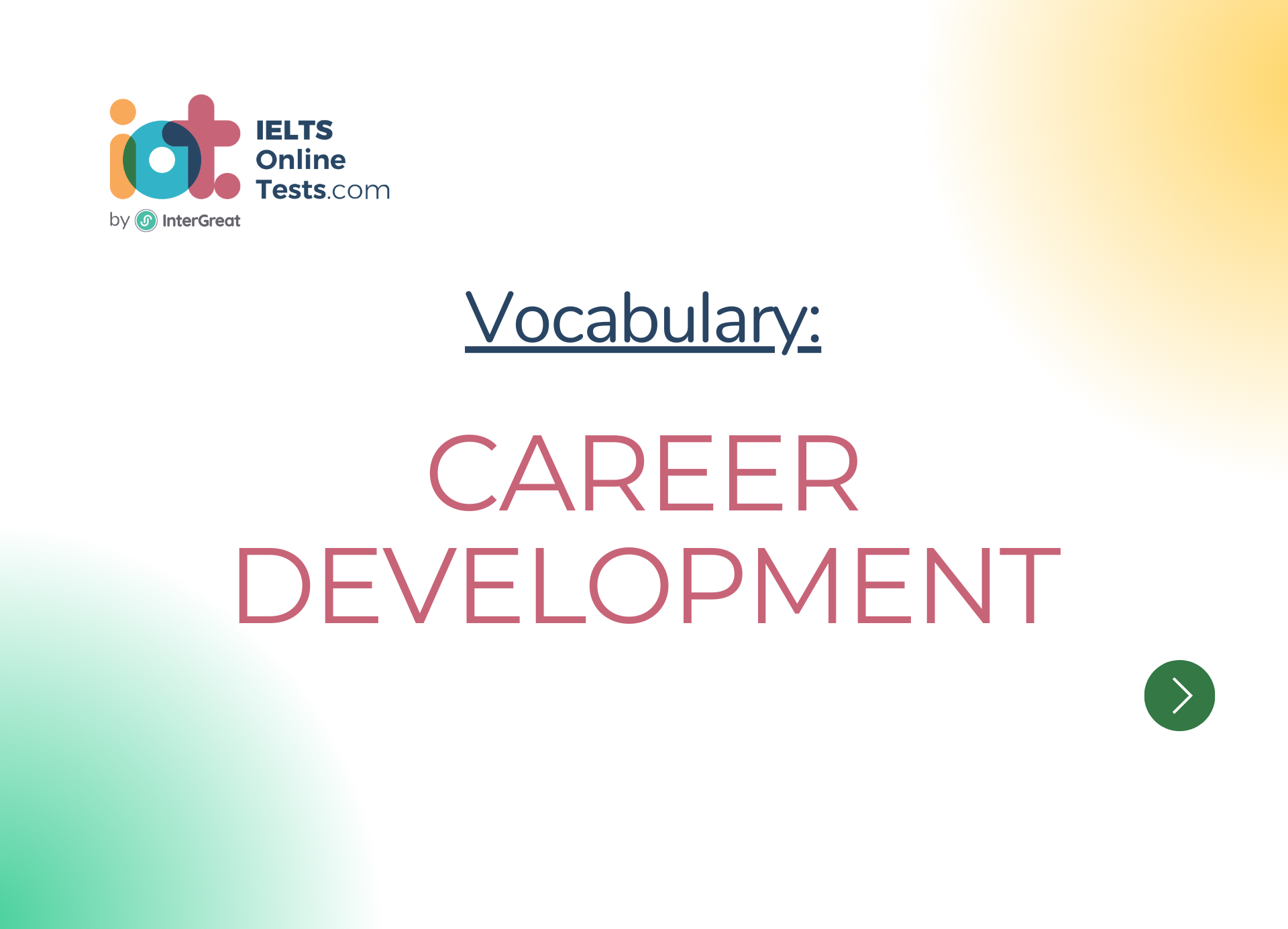
Career development
Here are some vocabulary words related to "Career Development" in detail, suitable for the IELTS band score range of 3.0-4.5:
I. Career Goals and Planning:
Ambition: Strong desire and determination to achieve a particular career goal.
Long-term goals: Objectives that span over an extended period, typically several years or more.
Short-term goals: Objectives that can be accomplished within a shorter timeframe, usually less than a year.
Career path: The sequence of jobs or positions that a person follows throughout their career.
Career planning: The process of setting career goals and developing a strategy to achieve them.
II. Skills Development:
Transferable skills: Abilities and competencies that can be applied in various job roles or industries.
Professional development: Activities undertaken to enhance one's knowledge, skills, and expertise in a specific field.
Skill set: A collection of skills and abilities that a person possesses.
Continuous learning: The commitment to ongoing education and skill development throughout one's career.
III. Job Application and Interviews:
Resume/CV (Curriculum Vitae): A written summary of a person's education, work experience, and skills.
Cover letter: A formal letter accompanying a resume that introduces the applicant and highlights their qualifications.
Job interview: A face-to-face or virtual meeting between a job applicant and an employer to assess suitability for a position.
Job application: The process of formally applying for a job by submitting a resume and/or application form.
IV. Networking and Professional Connections:
Networking: The act of establishing and maintaining professional relationships with others in one's field or industry.
Professional associations: Organizations that bring together individuals working in the same profession or industry.
Mentorship: A relationship where an experienced professional guides and advises a less experienced individual in their career.
References: Individuals who can vouch for an applicant's skills, qualifications, and character when seeking employment.
V. Career Advancement:
Promotion: The act of being raised to a higher position or rank within an organization.
Leadership skills: Abilities required to effectively manage and guide others in a professional setting.
Performance evaluation: Assessment of an individual's work performance, typically conducted by a supervisor or manager.
Career progression: The series of steps or advancements made in a person's career over time.\
VI. Job Satisfaction:
Work-life balance: Achieving a healthy equilibrium between work and personal life.
Job security: Confidence in having a stable and secure employment situation.
Job enrichment: Increasing the complexity and meaningfulness of tasks to enhance job satisfaction.
Career fulfillment: A sense of personal satisfaction and accomplishment derived from one's career.
VII. Professional Networking:
Industry events: Conferences, seminars, or trade shows where professionals gather to exchange ideas and network.
Informational interviews: Conversations with professionals in a desired field to gain insights and advice.
Online networking: Using social media platforms and professional networking websites to connect with industry peers.
Alumni network: A group of individuals who have graduated from the same educational institution and provide networking opportunities.
Remember to practice using these vocabulary words in context to enhance your understanding and fluency. Engaging in conversations, reading relevant materials, and practicing writing with these terms will help you become more comfortable and proficient in using them accurately.




